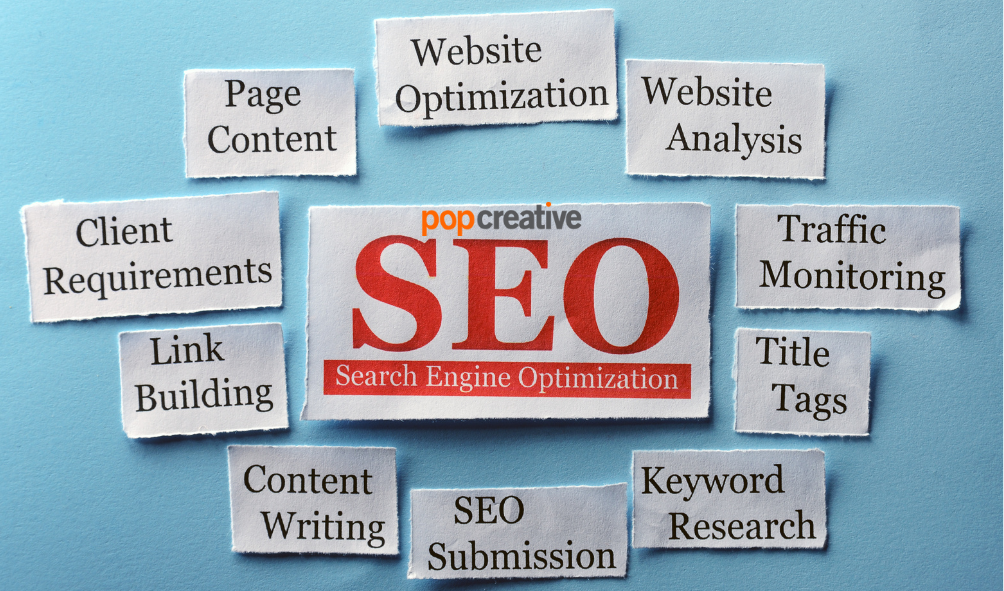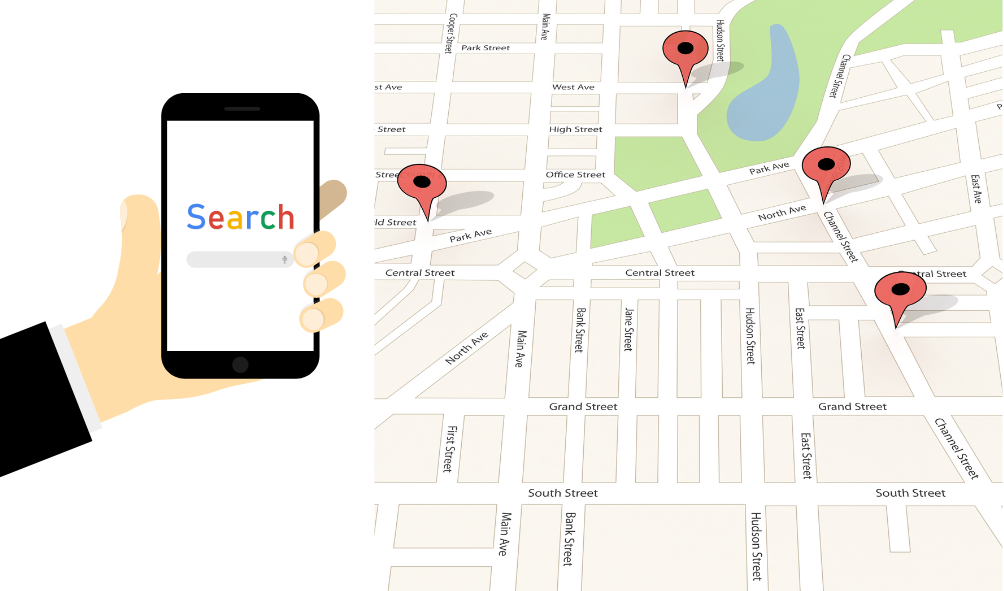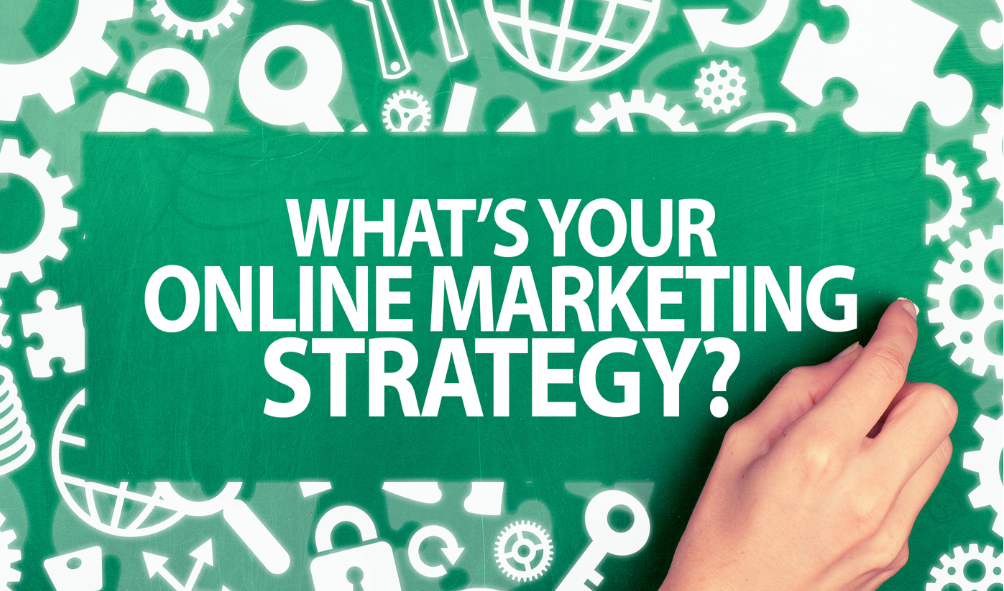Online marketing is fast becoming one of the most essential marketing channels. Every business of every size – whether it be a large corporate company or a family owned shop – can benefit from online marketing. But the world of online marketing is competitive and ever-changing. Search engines are always updating their algorithms and social sites are constantly add and remove features.
With so much change, it’s difficult to know how to do online marketing for your business. Perhaps you already have an online presence that you want to boost, or perhaps your business isn’t even online yet. Whichever way it goes, it’s never too late to establish an online presence for your company and reap the rewards of your marketing efforts.
The Basics of Online Marketing
Before diving into just how to do online marketing for your business, there are a few basics terms you must know. Knowing the terms below could help you gain a better understanding of online marketing concepts while doing research to improve your strategy.
Inbound Marketing
Inbound marketing is a widely used term for a marketing strategy that involves attracting customers to your business via techniques that will help customers who already want your product or service find you. This is opposed to driving customers away with unwanted marketing material. Offering value to potential customers via your marketing materials is an important part of inbound marketing.
The opposite of inbound marketing is called interruption marketing. As the term suggests, interruption marketing techniques are unsolicited and completely unwelcomed by your audience. An example of interruption marketing a TV advert that shows during your favorite show, or a marketing phone call.
Online, interruption marketing could include ads that play while you’re trying to watch online videos, or the promotional content in your social media news feeds.
Search Engine Optimization (SEO)
As the name implies, search engine optimization is all about improving your website to help it rank in search results.
SERPs
This is a common abbreviation for search engine results pages. Ideally, you want your website to rank in the top SERPs, as most users never go further than the first results page.
Search Engine Marketing
Search engine marketing is a broader term than SEO. It’s used to describe any marketing that’s intended to help your website show on Google – regardless if you’re paying for ads, or showing up in organic search results.
Pay per click (PPC)
Also called cost per click advertising, this is a form of paid online advertising where your advert is displayed in search engine results or on social media sites. As the name suggests, you pay every time an individual clicks your advert. PPC is the most widely used form of paid online advertising. The benefit of PPC is that you only pay for results, so you can get a much better return on your investment. Alternatively, you could pay for impressions, which means you pay for every person who sees your ad. This form on paid online advertising is called cost per impression, and it’s abbreviated as CPM (You might be wondering why it isn’t abbreviated as CP.
There’s still a lot of other online marketing terms that aren’t listed above, but the terms listed here should give you a good overall understanding of online marketing concepts going forward.
Why Inbound is the Best Form of Online Marketing
If you’re a small to medium sized business trying to get real leads from your online marketing, you’ll get a much better return on investment if you opt for inbound. That’s because inbound marketing is aimed at attracting people who already show interest in your product or service. Instead of annoying your audience with disruptive ads, your customers will discover you online by searching for you.
SEO is a good example of inbound marketing. By optimizing your website for search, you can help potential customers find your business on Google. However, even paid PPC listings in SERPs can be a form of inbound marketing if done properly.
Because inbound marketing is the best place to start when establishing an online presence for your business, this post will focus of different inbound marketing techniques.
How to Do Online Marketing: What You’ll Need
Before you can start doing online marketing for your business, there are some things you’ll need. Firstly, you’ll need your own company website. A website is one of the most essential parts of your online marketing strategy.
Secondly, you’ll need to create social media accounts for your business. Even if you aren’t planning to use social media yet, it’s wise to setup your profiles to reserve your username on each platform.
Lastly, you’ll need to have enough time to invest in online marketing. While the prospect of growing your company through online marketing seems exciting, it’s not always easy. After a while, you’ll likely find you aren’t getting response you hoped for from your marketing efforts.
Don’t let this discourage you, there are literally billions of websites competing for search engine rankings. It’s unlikely that yours will shoot to the top straight away. Over time, your collective efforts should start to pay off and you’ll start reaping rewards – it just takes more time and hard work than most people anticipate.
How to Improve Your SEO
One of the best ways to get results from online marketing is through SEO. If you’re website is listed at the top of Google’s search pages, a lot of people will be able to find your business online.
What Are Keywords?
The first SEO concept you must understand is keywords. Keywords are words or phrases that people often search for. For instance, the word “love” is searched for approximately 3 350 000 times a month, making it one of the most popular Google searches. Seeing as “love” is such a popular search term, you could get a lot of traffic if you ranked high when people search the internet for this word.
However, to attract leads, you must rank for keywords that your potential customers are looking for. A dental practice must rank for searches related to dentistry, whereas a florist needs to rank for searches related to flowers. Ideally, you also want your website to show up in local searches, such as “dentist near me” or “florist in Miami”.
The phrases that you’re trying to rank for are your keywords. Try to rank think of different ideas for what people might search to find a website like yours. Think of as many different keywords as you can. You don’t have to tailor all your website content to rank only for one popular search phrase.
To get your website to rank in SERPs, you must include your target keywords in your website content. A great way to start is by including keywords in the content of your main website pages, such as your Home, About and FAQ pages, for instance.
When writing content with keywords in mind, it’s important to have a balance. You want search engines to find your content, but you don’t want to include the keyword so much that your writing becomes repetitive. Repeatedly stuffing keywords into your writing can cause search engines to penalize your website and mark your content as spam.
Starting a Business Blog
The more keywords your website can rank for, the more traffic you’ll get. If your website consists only of your main website pages, you’ll be limited as to how many different search phrases you can rank for.
Blogging is an excellent way to broaden the range of search phrases your website can rank for. Every blog post can target a different set of key phrases. This will help more people find your business online through your blog.
When blogging, it’s important to write posts that are informative. Look for common questions people ask about your industry and try to write posts to answer them.
Social Media Marketing
Social media is a great platform to help people find your business online. People use social sites to interact with their favorite brands and connect with businesses. Networking is also a major part of social media, which means a social media presence could open up business opportunities you would otherwise miss out on.
A lot of people skip Google and head straight to social sites like Facebook when searching for products and services. In this case, a proper Facebook page is what would help you get found online. Another benefit of having a business Facebook page is that it’s like your own mini website and it’s easy to setup.
Of course, you can use your social media profiles to attract attention to your business. By posting about special offers at your company and other news, you can attract traffic to your business website and make more sales.
Pay Per Click Advertising
PPC can help your website show up in relevant Google searches under the “ads” section in the results. To run a PPC campaign, you need to choose keywords you want to rank for, as well as what products or services you want to advertise. You can set your campaigns with relevant keywords in Google Adwords.
You can also set negative keywords in Adwords to avoid showing your ad in certain results. So, if you have a business that sells jerseys, but you find that people who arrive at your website search for “jersey country”, you can set a negative keyword such as “country” to avoid getting traffic from searches that aren’t related to the clothing item you sell.
The information in this post barely scratches the surface of online marketing. Learning to do online marketing will take a lot of time. Whether it be keyword research, blogging, social media marketing or PPC campaigns, there’s so much more you can learn than is mentioned in this post.
To get good online marketing results from the start, you can hire a professional online marketing company to do your marketing. Find out more about what an online marketing company can do for your business.






Recent Comments